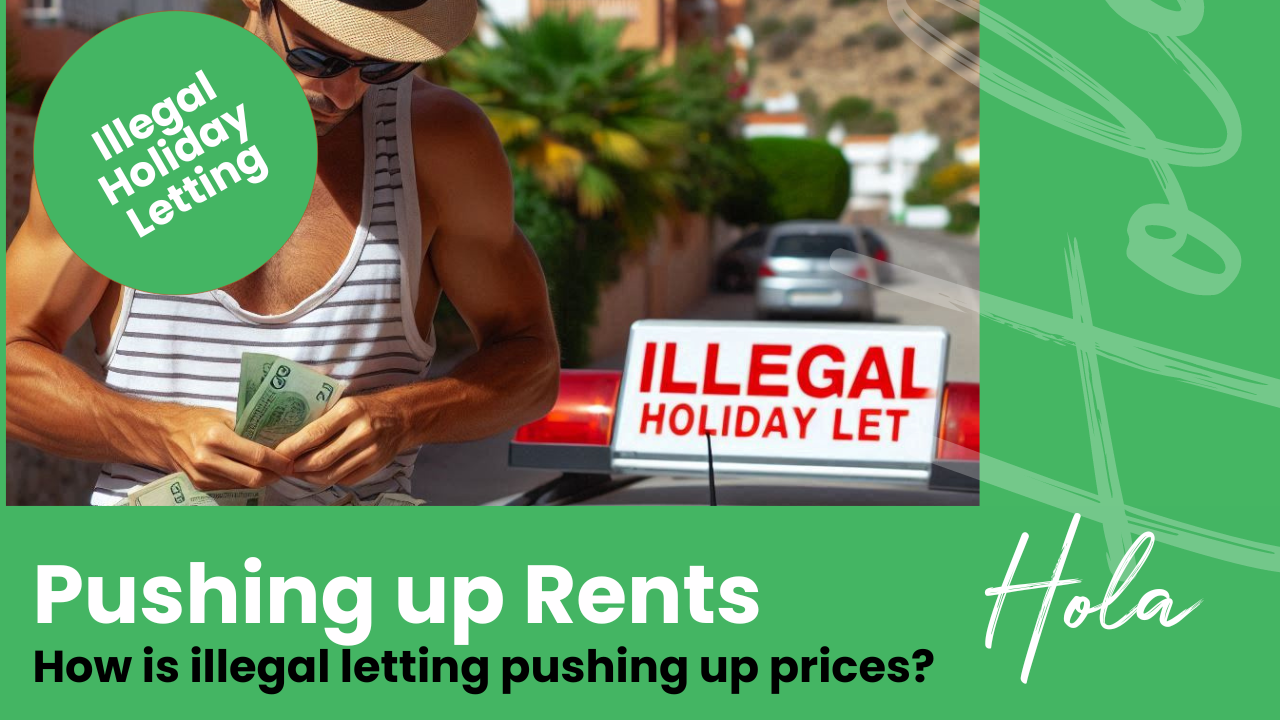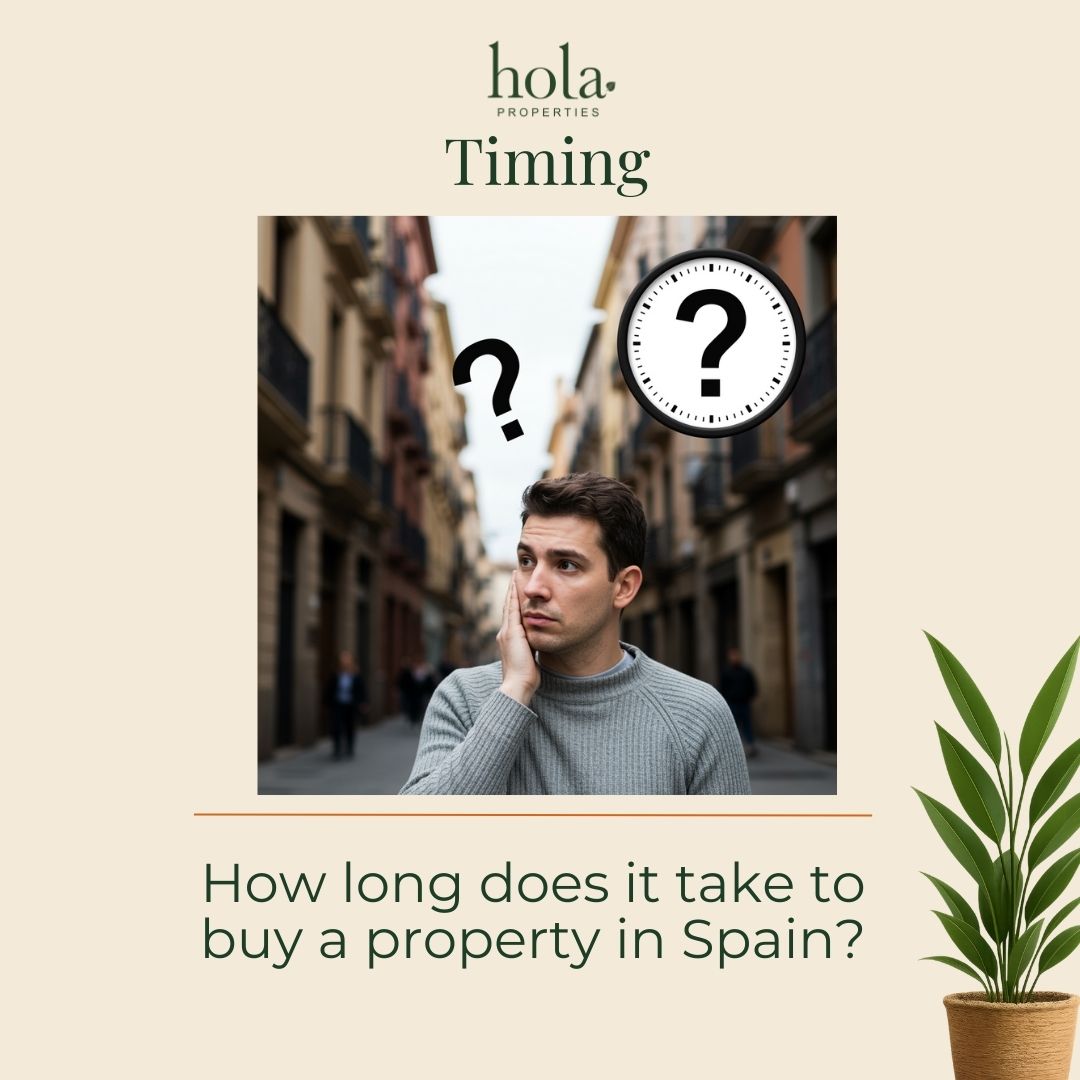Are Illegal Rentals and Holiday Lets Driving Up Prices?
In recent years, the rise of illegal rentals and holiday lets has become a contentious issue in many areas of Spain. This is not only affecting the housing market but also contributing to wider economic and social implications. Here we will explore the logical explanation behind how these unregulated practices are driving up prices and creating an uneven playing field for those who are operating legally.
The Rise of Illegal Rentals
Spain’s beautiful landscapes, sunny weather, and vibrant culture make it a prime destination for tourists and expats alike. Consequently, the demand for holiday accommodation has soared. Many property owners have capitalised on this demand by renting out their homes as short-term holiday lets. However, a significant number of these rentals operate illegally and without the necessary tourist licence, advertising their properties on social media and other platforms without providing their licence numbers.
The Financial Benefits for Illegal Operators
Operating without a license offers several financial benefits to property owners. By avoiding the formal registration process, these people can avoid the costs associated with getting a licence, such as inspections and compliance upgrades. Furthermore, many of these illegal rentals accept cash payments, allowing them to evade taxes and other fees. This helps them to maximize personal profits, as they do not declare their full income.
The Impact on Property Standards
Licenced properties are required to meet specific standards to ensure safety and comfort for tenants. However, illegal rentals often do not comply with these minimum standards, as the owners are not subjected to the same regulatory scrutiny. This lack of compliance can lead to substandard living conditions for tenants, who may be unaware of the property’s legal status.
The Ripple Effect on Legal Rentals
Those who operate legally incur higher costs due to licencing fees, taxes, and necessary compliance upgrades. To cover these expenses, they are often forced to increase their rental rates. However, illegal operators, free from these financial burdens, can afford to undercut the market while still reaping higher profits. This creates an unfair competitive advantage, forcing legally compliant landlords to raise their prices to remain viable.
The Long-Term Let Market
The issue extends beyond holiday lets to the long-term rental market as well. Illegal long-term rentals are often conducted without proper contracts or registered deposits. This lack of formal agreement can lead to tenants being abused in various ways, such as the withholding of deposits or neglecting essential maintenance. Additionally, by avoiding taxes on rental income, these landlords further boost their profits at the expense of their tenants’ legal protections.
The Vicious Cycle
This scenario sets off a vicious cycle in the rental market. As illegal operators continue to evade costs and maximize profits, the disparity between legal and illegal rentals grows. Those renting legally find themselves at a disadvantage, unable to compete with the lower prices of illegal rentals. Consequently, they are forced to raise their rates to cover costs, inadvertently pushing overall market prices higher.
The problem is exacerbated as more property owners are tempted to follow the illegal route to remain competitive. This perpetuates the cycle, leading to an increasingly unaffordable rental market for both holidaymakers and long-term tenants.
Addressing the Issue
Addressing this issue requires a multi-faceted approach. Increased regulatory enforcement is essential to identify and penalize illegal rentals. This includes better monitoring of the online platforms where such properties are advertised and more rigorous inspections. Furthermore, public awareness campaigns can help educate property owners and tenants about the importance of compliance and the risks associated with illegal rentals.
Incentives for legal compliance, such as tax breaks or subsidies for property upgrades, could also encourage more owners to operate within the law. Lastly, a streamlined and transparent licencing process would make it easier for property owners to obtain the necessary permits and adhere to regulations.
Conclusion
The prevalence of illegal rentals and holiday lets in Spain’s popular areas is undeniably driving up prices and creating an unfair market. By maximising profits through tax evasion and non-compliance, illegal operators place legal landlords at a disadvantage, leading to higher rental costs across the board. To protect tenants and ensure a fair and sustainable rental market, it is crucial to address these illegal practices through stricter enforcement and supportive measures for legal compliance.
For more interesting articles on the property market in Spain JUST CLICK HERE
To watch videos about buying and selling safely in Spain just click here




